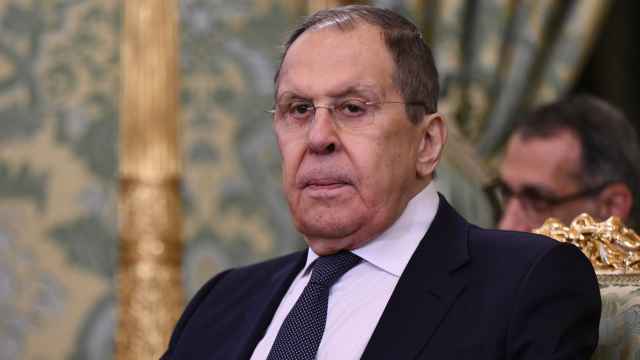Last week, lawyer Dagir Khasavov — who serves as an adviser to Federation Council Senator Valentina Petrenko, a member of the All-Russia People's Front — called for the creation of Sharia courts in Russia and promised to "fill the city with blood" if it does not happen. He also called for Russia's entry into the future caliphate.
I am categorically opposed to prosecuting people for their words only, but that does not mean we should ignore Khasavov's incendiary statements.
For starters, the Federal Security Service should pay particular attention to Khasavov. After all, the man promised to "fill the city with blood," and the security services should know whether he is planning to back up those words with actions. The FSB has spent a lot of resources tracking opposition leaders Boris Nemtsov and Alexei Navalny, while they ignore the real threats right under their noses.
Petrenko should fire Khasavov. The only possible thing that is stopping her from doing that, one can assume, is that she might share his views. If that is the case, she has no right to remain a senator.
It would seem logical that the Russian Orthodox Church, the mainstay of Russian statehood, would issue a statement in reaction to Khasavov's words. Unfortunately, the only response came from church spokesman and archpriest Vsevolod Chaplin, who offered the following tolerant words: "There is no reason to limit the Islamic community's ability to live by its own rules."
As for Khasavov's appeal to establish Sharia courts, they already de facto exist in the Caucasus. No one in Russia, the United States, France or elsewhere can deny any two Muslims the right to settle their differences with the help of an imam. The only way governments can address this issue is not through violence but by offering a better alternative.
The Russian government cannot sanction the practice of stoning, chopping off a hand for theft and other Sharia practices. In 1997, when Chechnya had Sharia courts, it was impossible to convict a single murderer or traitor. This is because any Muslim accused of a crime could tell the court, "I swear on the Koran that I was not the one who committed the crime." And even if his accusers were to produce a document with his signature that proved his guilt beyond a doubt, the man would go free because he had sworn on the Koran.
What's more, during the height of Sharia law in Chechnya, Chechens would ask the imams for a fatwa giving them permission to abduct people. The imams not only complied but also gave instructions concerning which body parts they were allowed to cut off from their hostage and exactly how to do it. So the biggest problem is the judges, not the courts per se.
The integrity of the Russian state is not dependent on the desire of Patriarch Kirill or his relative to appropriate a luxury Moscow apartment or to wear an expensive Breguet watch. The Russian Orthodox Church must understand that the country's laws apply to everyone in the country.
It is strange that the church does not understand this and does not come out against the practice of stoning someone for adultery and the idea of Russia joining the caliphate.
Yulia Latynina hosts a political talk show on Ekho Moskvy radio.
A Message from The Moscow Times:
Dear readers,
We are facing unprecedented challenges. Russia's Prosecutor General's Office has designated The Moscow Times as an "undesirable" organization, criminalizing our work and putting our staff at risk of prosecution. This follows our earlier unjust labeling as a "foreign agent."
These actions are direct attempts to silence independent journalism in Russia. The authorities claim our work "discredits the decisions of the Russian leadership." We see things differently: we strive to provide accurate, unbiased reporting on Russia.
We, the journalists of The Moscow Times, refuse to be silenced. But to continue our work, we need your help.
Your support, no matter how small, makes a world of difference. If you can, please support us monthly starting from just $2. It's quick to set up, and every contribution makes a significant impact.
By supporting The Moscow Times, you're defending open, independent journalism in the face of repression. Thank you for standing with us.
Remind me later.





